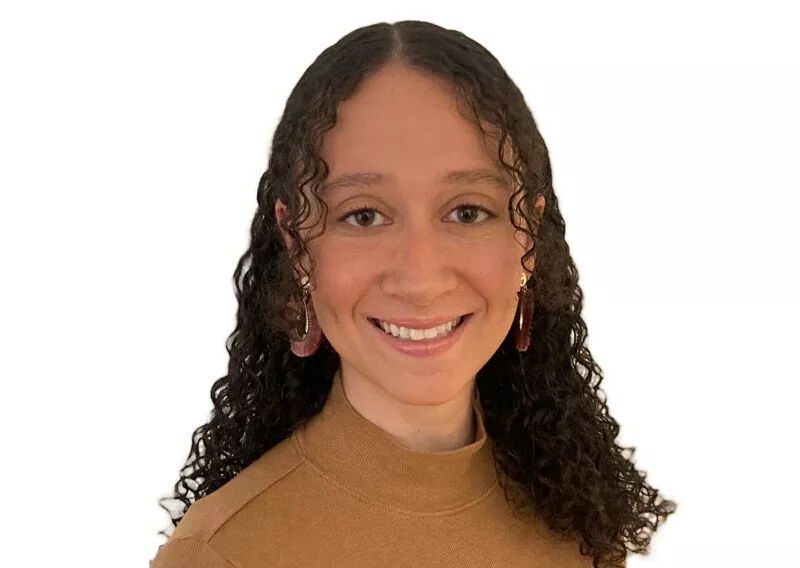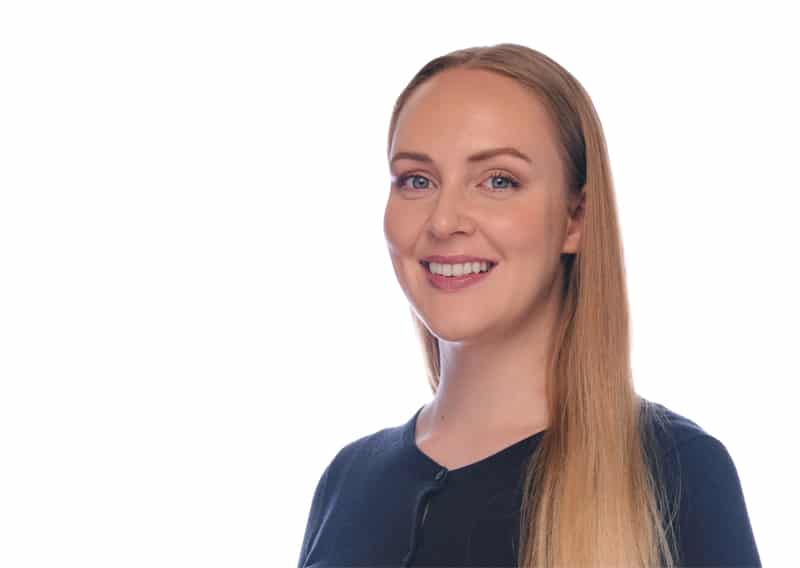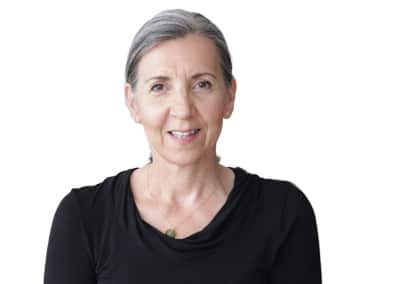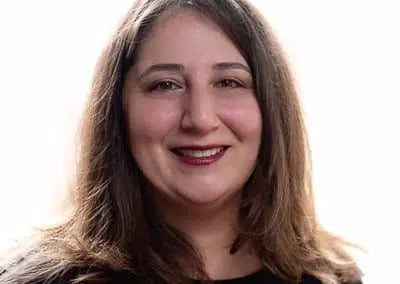
Questions About Life Coaching:
Coaching Goals

Dr. Lisa Marie Bobby is a licensed psychologist, licensed marriage and family therapist, board-certified coach, AAMFT clinical supervisor, host of the Love, Happiness, and Success Podcast and founder of Growing Self.
If you’re looking to hire a life coach, you likely have some important coaching goals you’re eager to accomplish. If so, you’re on the right track. Working with an effective life coach can be a transformative personal growth experience, helping you get clear about the life you really want for yourself and the changes you need to make in order to create it.
From having healthy relationships, to growing as a person, to career development, to discovering what makes you happy, to finding true love, there are as many coaching goals as there are people who want more for themselves. Lucky for them, coaching with an online life coach or Denver life coach can be an effective, satisfying path to finding balance, and building a better life, potentially even more so than traditional talk therapy.
At Growing Self, our evidence-based approach to coaching focuses on three major life areas: Love, Happiness, and Success. I hope this article gives you some ideas about the types of goals you can pursue with your coach, as well as a few that would be better handled through more traditional therapy.
Coaching Goals: Love
Whether single or attached, people often enter coaching with the goal of building the love life they want for themselves.
Relationship Coaching
Couples may seek out relationship coaching to strengthen their security, improve communication, and deepen their bond. Sometimes this work will center on improving emotional intelligence, a crucial factor in the quality of any relationship, whether professional, platonic, or romantic. Emotional intelligence training can help you understand your feelings and be sensitive to those of your partner, creating a healthier pattern of relating to one another.
Relationship coaching is often the fastest and most direct route for helping couples achieve real and lasting positive change in their relationships. Relationship coaching has many similarities to evidence-based marriage counseling and couples therapy, but there are some important differences too. Learn more about Relationship Coaching vs Couples Therapy, if you’re interested.
Healthy Relationships
Individuals may also seek relationship coaching on their own in order to improve their own way of thinking, feeling, and behaving in relationships. A good relationship coach can help you increase self esteem, get more comfortable with vulnerability, learn how to communicate and validate the people who are important to you.
Through working on yourself, you can improve your experience of empathy and connection in existing relationships, or to learn how to feel more confident about developing fulfilling new connections. In addition to emotional intelligence training, these sessions may be aimed at creating healthy boundaries, learning how to be appropriately assertive, and even stop people pleasing — all factors that make a big difference in both romantic relationships and friendships.
Dating Coaching
Single people may also seek out an online dating coach with the goal of finding a healthy, satisfying long-term relationship. In addition to developing communication skills, healthy boundaries, and emotional intelligence, an online dating coach or Denver dating coach can help you examine your relationship history and how you’ve shown up with past partners to understand what’s working for you and what’s not.
By developing your understanding of yourself, what you want, and the obstacles and opportunities between you and your desired outcome, the best dating coaches can help you figure out exactly what to do in order to find love that lasts.
Breakup Recovery Coaching
Finally, people often seek out breakup coaching or divorce coaching to heal from a broken heart. Opting for coaching over therapy in these scenarios can be an excellent choice; people who enter traditional talk therapy following a breakup or divorce will often be misdiagnosed with a mental health issue, like depression or codependence, when in reality they’re having a perfectly normal reaction to a seismic rupture in attachment.
Rather than offering an actionable path forward, therapy may focus on the client’s family history (their parents’ divorce, perhaps) or the “attachment injuries” making it difficult for them to let go of the relationship. In reality, letting go of someone you love is always difficult. Pathologizing heartache can leave people feeling like there’s something fundamentally wrong with them, at a time when their self-esteem is already in the gutter.
Instead, coaching for breakup and divorce recovery follows a growth model, from the perspective that grief is a normal, expected reaction to the loss of an important relationship, and part of our very biology. A coach can help you manage the process of detachment so that you can let go of your ex and move forward in a healthy way. You can repair your self esteem after a breakup, learn to love yourself, and create a happy new life for yourself.
When to Choose Therapy Instead
There are some relationship scenarios that coaching is not appropriate for: working on any relationship issues that involve abuse, or mental health conditions. For example, if your partner is violent toward you, gaslighting you, or abuses you verbally, sexually, or emotionally, a life coach will not be able to help. Instead, contact a counselor or a domestic violence organization in your area.
Additionally, if your relationships are being impacted by the presence of a mental health issue, or if you’ve suffered through traumatizing experiences in relationships in the past, Denver therapy or online therapy may be a better choice for you than coaching. Evidence-based therapy can help you heal, as well as grow. Then, you’ll be in a strong place to continue moving forward, and actively create healthy relationships in the future.
Learn more about the differences between counseling and coaching, and whether to look for a life coach vs therapist.
Coaching Goals: Happiness
Authentic happiness can sometimes seem elusive, but truly happy people know the secret: You make it happen. Happiness is not circumstantial. It’s grown. Like a fulfilling career, a happy life is something that’s designed intentionally, not stumbled upon. One of the most important things a life coach does is work with you to design the life you want, helping you uncover what would make you genuinely happy, and how to stay motivated to go after it.
Life Coaching For Life Transitions
People often seek out this form of coaching when they’re on the cusp of a life transition: thinking about changing careers, ending or entering relationships, or becoming a parent. When navigating tricky life transitions, it helps to remember that our goals are about more than the end results, like a new job, a healthy partnership, or starting a family. We’re trying to build a happy life for ourselves, and to do that we have to understand who we are and what we value.
Life Coaching for Holistic Life Design
“Holistic Life Design” may sound a little new age, but it’s simply one of the benefits of coaching, aimed at getting to the heart of these questions and building a satisfying, well-rounded life based on what you find. Borrowing from positive psychology, this form of coaching will ask, what’s really important to you? What makes you happy, and not just for a fleeting moment, but in a lasting, meaningful way? And once you know what to do, here comes the hard part: How can you keep the commitment to yourself, to create that? (Hint: Having an accountability partner, like a life coach, keeps you on track. Learn more about what a life coach does, if you’re interested.)
Life Coaching For Emotional Wellbeing
Another very important (possibly more important) way that working with a life coach helps you create authentic happiness has zero to do with your life circumstances, or changing them. It’s about helping you develop internal skills that help you feel calmer and happier — no matter what’s going on. When you learn how to manage your thoughts, feelings, and behaviors, you are able to stay in a good space. That’s the essence of emotional intelligence and cognitive behavioral therapy, and it’s also a core component of effective, evidence-based coaching.
Of course, no one’s happy all the time. But when you’ve learned how to manage your thoughts and feelings in order to create emotional health and cope with inevitable disappointment, and designed your life intentionally, with your most deeply held values in mind, you’ll be able to find meaning that sustains you even through tough times. This is an excellent goal to work toward in coaching.
When to Choose Therapy Instead
As with all types of coaching, there are times when coaching will not be the right choice. When mental health issues are contributing to your feelings of dissatisfaction and unhappiness, coaching is not appropriate. Coaching is for the purpose of achieving growth and goals — it is not mental health treatment. If you have symptoms of a condition like depression or anxiety, first seek treatment from a licensed mental health professional. Once you’re feeling better, then you’ll be ready to achieve your coaching goals.
Let’s Talk.
Schedule a Free Consultation Today.
Coaching Goals: Success
We spend a great deal of our lives working, and how you feel about the work you do can contribute as much to your life satisfaction as can the quality of your relationships, or your overall emotional wellbeing. Because our career path is so important, it makes sense to invest in making that aspect of your life as genuinely meaningful and satisfying as possible. Many people turn to Denver career counseling or online career coaching with those coaching goals in mind.
At Growing Self, we focus on holistic career design, helping you build a career path that’s one component of a rich, full life. If you want to be an astronaut, a career coach can help you create a plan to achieve that. But a coach focused on holistic career design will take it a step further, helping you figure out how to be an astronaut who also has a family, and time to spend on her bonsai tree hobby.
This process is deeper than simply setting professional goals and achieving them, although that’s important too. You’ll dig into the bigger picture: What’s the purpose of work? What are your values, and how can you build a career that aligns with them? Who are you really, and how to be a force of good in the world?
Unfortunately, young adults are rarely asked these questions when they’re embarking on a career path. By the time we reach our thirties, it’s not uncommon to worry if you’ve taken a wrong turn somewhere along the way. If this sounds like you, a coach can guide you through a process of discovery around how to make your passion your career, helping you discover what you’re good at, what you enjoy doing, and how to arrive at the working life you want from where you are now.
If the career you’re in is already a good fit in general, career coaching for career development is still a valuable tool. You may need to develop leadership skills, manage teams, or succeed in a new role with increased responsibility. A classic example of this is the software engineer who’s so good at his job, that he’s asked to manage a team. Now he has to exercise leadership and management skills, when he’s accustomed to writing code all day. (This is a scenario where emotional intelligence coaching at work could be hugely beneficial.)
Or maybe you simply need some help choosing your next move within your chosen career path. A career development coach can work with you to figure out how you’d like to grow from where you’re at, and the steps you need to take to do so.
What Are Your Coaching Goals?
Sometimes people enter coaching with concrete goals in mind, like writing a book, running a marathon, or landing their dream job. However, many times, people arrive in coaching without really knowing what they want — just that they want something different than their current life experience. That’s okay.
One of the first steps of effective coaching is a self-discovery process that helps you create clarity. One of the most important things a good coach does is help you understand yourself, gain self-awareness, and uncover your truth. Only then can you be sure the goals you choose for yourself fit into your larger vision for your life. With that clarity established, a great coach will then help you create — and achieve — the specific goals that will, step-by-step, help you create the results you want.
I hope that learning about all the coaching goals a good coach can help you attain has helped you feel inspired about what’s possible for you, too. Thanks for taking the time to learn about life coaching with me!
Your partner in growth,

Dr. Lisa Marie Bobby is a licensed psychologist, licensed marriage and family therapist, board-certified coach, AAMFT clinical supervisor, host of the Love, Happiness, and Success Podcast and founder of Growing Self.
Meet a Few of Our
Expert Love, Life, & Career Coaches
Meet Our Team
Linda P.
M.A., LMFT
Thriving Personal & Professional Relationships
Meet Linda: a relationship expert and certified emotional intelligence coach with a unique blend of professional experience as a marriage counselor, executive coach, leadership coach, life coach, and therapist. She's here to help you understand yourself and others, improve your communication, increase your emotional intelligence, and cultivate positive relationships — both personally, and professionally.
Silas H.
M.S., LMFT
A Partner in Growth for Individuals & Couples
Meet Silas: a couples counselor, therapist, and life coach with an easy-going, humorous, and down-to-earth style that makes personal growth work both enjoyable and effective. His tireless support, encouragement, and expertise help you stay motivated to make real and lasting change in yourself and your relationships.
Dr. Rachel D.
DMFT, LMFT
Expert Care for Your Relationship
Meet Dr. Rachel: a relationship coach and marriage and family therapist with a warm personality and productive approach. She helps you and your partner restore trust, deepen intimacy, reconnect emotionally, and transform your shared life through the healing power of a healthy partnership.
Talia R.
M.S., MFTC
Straightforward, Open-minded & Action-Oriented
Meet Talia: a relationship specialist whose warm, collaborative approach guides you toward deeper exploration, connection, and understanding. With her authentic and straightforward style, she can help you gain the clarity and skills to cultivate the life and relationships you desire.
Jenna P.
M.A., LPC, LMFT
Insightful, Welcoming & Productive
Meet Jenna: a supportive marriage counselor, couples therapist, individual therapist, and life coach with a friendly, light style and a great sense of humor. She uses effective, evidence-based techniques to help you build understanding for yourself and your partner, increase intimacy and connection, and achieve your most important goals.
Emily B.
M.S., LMFT
Dedicated to Your Empowerment
Meet Emily, a couples counselor, relationship coach, individual therapist and life coach with a positive, empowering approach to helping you create the change you desire. Emily believes that we each have the seeds of wisdom inside of us — and that with the right support, you can cultivate greater well-being, love, and success.
Dr. Ben J.
Ph.D., LMFT, LCMFT
Healthy Relationships, Happy Life
Meet Dr. Ben: a couples counselor, premarital counselor, individual therapist, and life coach who helps you activate your inner strengths to create better relationships and a fuller life. His collaborative, friendly style makes him easy to talk to, and his action-oriented mindset helps you get results.
Kanya D.
M.A., LMFT
Inspired Life, Inspired Love
Kanya is a licensed marriage and family therapist, individual therapist, life coach, and parenting coach with more than 20 years of experience helping couples develop deeply loving and satisfying relationships, helping parents and families thrive, and helping individuals reclaim their happiness.
Dr. Paige M.
PhD, LMFT
Kind, Encouraging & Insightful
Dr. Paige is a friendly and enthusiastic therapist who is passionate about you living a meaningful, joy-filled life based on your true values. She's a big believer in the transformative power of vulnerability — and helping you build a brave space where you can connect deeply with the people you love most.
Kensington O.
M.S., LMFT
Compassionate, Present, and Supportive
Meet Kensington: a couples counselor, premarital counselor, individual therapist, life coach, and breakup recovery counselor. With compassionate understanding and unique insights, Kensington helps you move past the past and improve the most meaningful parts of your life — from your emotional well-being to your relationships.
Georgi C.
M.S., LMFT
Nurturing Healthy Families & Happy Relationships
Meet Georgi: a warm, compassionate, Arkansas-based marriage counselor, individual therapist, and family therapist who creates a safe and supportive space for you to find meaning in your struggles, realize your self-worth, and cultivate healthy connections with the most important people in your life.
Elizabeth B.
M.A., LMFT
Emotionally-Focused, Authentic & Understanding
Meet Elizabeth, a couples counselor and individual therapist who uses evidence-based approaches in her emotionally-focused work with clients. She believes in your potential for profound healing and growth. She will help you cultivate self-compassion and emotional wellness, so you can build the life and relationships you deserve.
Roseann P.
M.S., LMFT
Open Heart, Wise Mind
Meet Roseann: an empathetic and intuitive marriage and family therapist, individual therapist, and life coach. Through authentic connection and a down-to-earth demeanor, Roseann guides you toward clarity and well-being. Using mindfulness and values-driven action, she helps you overcome challenges and create fulfillment in all aspects of life.
Alejandra P.
M.A., LMFT
Dynamic, Transformative & Compassionate
Alejandra is a true expert at nurturing your positive transformation — helping you to find happiness in your life and fulfillment within your relationships. She will help you break free from old patterns that are getting in the way of the life you want, and then chart your pathway to achieving your most important goals.
Brittany S.
M.A., LMFT
Compassionate Care For You & Your Relationships
Meet Brittany: a couples counselor, individual therapist, premarital counselor, and a life and relationship coach with a warm, authentic, emotionally-focused approach. She works with you to build deeper connections, restore emotional bonds, and grow in your capacity to love and be loved.
Tania C.
M.B.A., M.A., LMFT (she/her/hers)
International Love, Life, & Career Coach
Meet Tania: a relationship coach, career coach, dating coach, and executive coach with a unique blend of experience, education, and training, and a nuanced cross-cultural perspective. As a relationship expert and a career expert, Tania can help you build passionate and fulfilling relationships while thriving in your professional life.
Meagan Terry
M.A., LMFT
The Relationship Specialist
Meet Meagan: an experienced Licensed Marriage and Family Therapist who specializes in helping you create happy, healthy, joyful relationships. She's an expert marriage counselor, emotional intelligence coach, premarital counselor, and dating coach who uses effective therapeutic approaches to help you create a lifetime of love.
Ronni M.
M.A., LPCC
Illuminate Your Possibilities
Meet Ronni: a career counselor, life coach, and individual counselor with a caring personality and a flare for adventure. Whether you want to embark on a new career path, work on personal growth goals, or pursue greater life satisfaction, she’s here to support and motivate you to create positive change.
Dr. Tuyet
Ph.D., LMFT
Committed to your Happiness and Success
Meet Dr. Tuyet: a highly compassionate and experienced licensed marriage and family therapist. Dr. Tuyet uses an evidence-based approach to equip you with the tools you need to build the life and relationship you really want. She will empower you to dig deep, take risks, and weather life's transitions with ease and grace.
End of Members
No more pages to load
The therapists and life coaches of Growing Self have specialized education and training and years of experience in helping people achieve their personal and professional goals. We use only evidence based strategies that have been proven by research to help you get clarity and direction, have better relationships, feel happier, and design your ideal life.
This website is devoted to your wellbeing, and offers loads of free information and actionable advice that you can start using today to create positive change in your life. Browse around to meet our experts, get free advice on our blog, listen to a podcast, or take our “How Healthy is Your Relationship” quiz.
Or, if the time is right, you can schedule a free consultation with any of us to talk about your situation — and, most importantly — your hopes for your future.
Let’s Talk.
Schedule a Free Consultation Today.
What Should I Do With My Life?
Figuring out what to do with your life can feel overwhelming, especially when you have lots of options. Here’s how to get clarity and direction…
Why “Holistic” Career Coaching?
“Holistic career counseling” takes all of your life goals into consideration when crafting your career path. Why this matters…
Professional Development
Choosing a career and getting a job is only the beginning. Professional development helps you continue to grow and thrive. Learn more…
What is Emotional Intelligence?
Emotional intelligence can make or break a career (not to mention a marriage). Read “what is emotional intelligence” to learn why EI is so important on the job, and off — and how to develop it in yourself.
What is a Career Path?
Career pathing refers to the process of mapping out your professional trajectory, step by step, and into the future. Here’s how to make “career path planning” work for you…
Leadership Development
Moving into a leadership role often requires an entirely different skill set than the one that led to your original success. Want to grow into a great leader? Learn about leadership coaching.
Choosing a Career
Deciding on a career is a major life decision that requires deep insight into yourself, in order to create a satisfying career in alignment with your passion and your values. Learn how to choose a career…
What is a Career Coach?
What does a career coach do? What to expect in career coaching? What are the different types of career coaches? All is revealed in, “What is a career coach?”
How to Find a Career Coach
Not all career coaches are the same in terms of their training, expertise, or capacity to help you in specific situations. Here’s what you need to know about finding the right career coach for you…
How Much Does a Career Coach Cost?
Great career counseling is priceless, but the cost of a career coach can range from free, to thousands, depending on your goals and the type of coach you choose. Learn about career coaching costs, right here.
Does Insurance Cover Coaching
Does insurance cover coaching? Is there such a thing as “coaching insurance?” Here’s what you need to know about health insurance and coaching…
Gift Career Coaching
You can support a loved one through their career exploration and professional growth work by gifting them career coaching with an expert career counselor. How to gift career coaching…
Career Coaching Services
We offer many career coaching services to support your career development including Denver career coaching, online career counseling, leadership coaching, emotional intelligence coaching, and more.
Resume Writing Services
While our specialty is in-depth career counseling for personal growth and professional development, we also offer resume writing services and interview coaching. Learn more…
Solution Sessions
If you’re looking for quick career advice about a specific situation, consider a one-time solution focused coaching session to get clarity and direction. Learn about “solution sessions.”
The Success Collection
Our career counselors are here for you. Browse The Success Collection for their best career advice in our blog and podcasts.
More Questions? Let’s Talk.
We’re available by phone, email, text and chat, and happy to answer any of your questions personally. Get in touch, anytime.
Start Career Coaching
Ready to begin career coaching with Growing Self? Schedule a free coaching consultation with the coach of your choice. Start here.

























